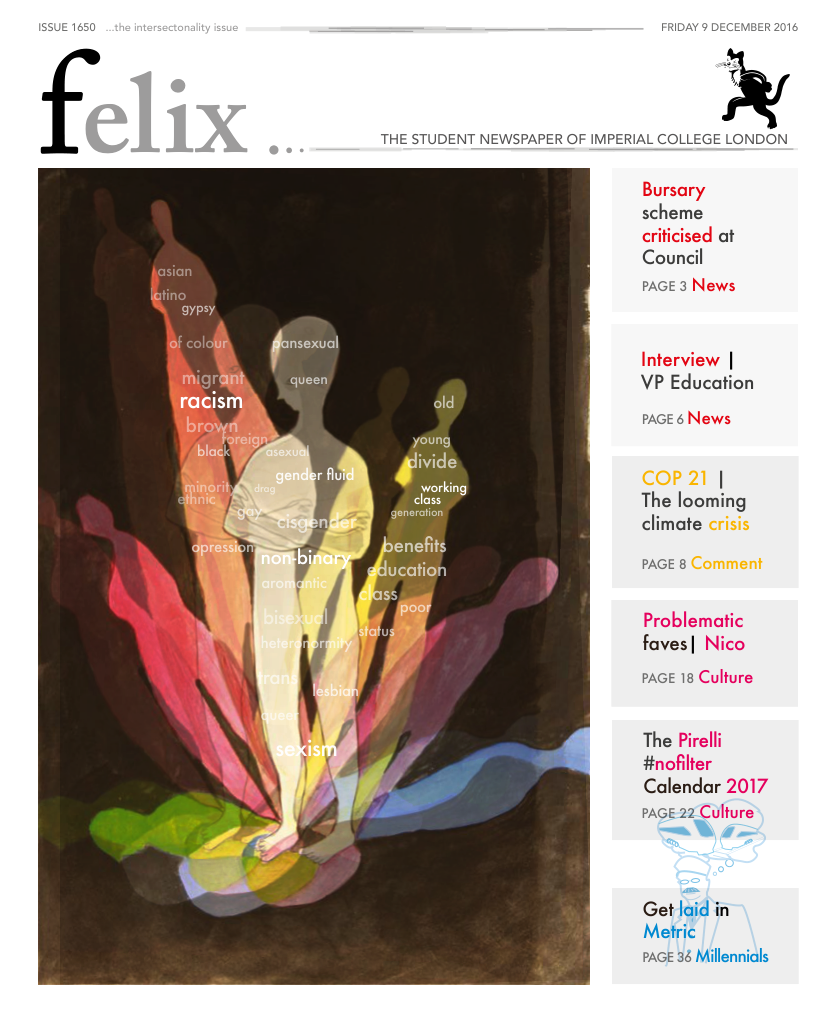The Looming Climate Crisis, COP 21, and the Will to Survive
Jawaad Farooq looks to the future of combatting climate change.

This week a positive 20°C air temperature anomaly has been recorded over the Arctic Ocean. With sea temperatures averaging around 4°C higher than is usual for October and November, it looks like we are set to see more extreme effects of climate change in the near future. With these alarming indicators and the Paris climate change deal where 200 nations reached an agreement to limit global warming to 2°C, you would assume the world is moving in the general direction of taking this threat seriously and putting more resources at the disposal of the agencies that are equipped to deal with this.
With Trump’s decision to strip NASA’s earth science division of its funding, however, we are seeing the first signs of his anti-climate change stance coming into play. Following on from his other tentative reversals, he has conceded that there may be some ‘linkage’ between climate change and human activity. That is a big jump from it being a Chinese conspiracy against American businesses, but his actions are more important than words here. The focus apparently should be on ‘deep space research’ according to Bob Walker, a senior Trump advisor. While deep space may provide a distraction to the general populations from woes closer to home, a focus on the earth and its functions is essentially important if we are to manage our impact on the planet.
The USA has been the world’s policeman for some time, and a word from the US is taken seriously; however, Trump’s actions may signal a shift from leading the fight against climate change towards a more apathetic stance. This is not what the world needs. The US along with Chinese cooperation made the Paris climate talks a success. The $100bn climate fund the UN promised to make available to poorer countries to spend in combating climate change is a vital asset. Only 8% of this pledge has been funded, however, with the US contributing only $500m of its $3bn pledge so far and there is worry that further funds will not materialise under a Trump government.
The idea of political will is important. For the Paris climate talks each country submitted a plan called a Nationally Determined Contribution (NDC) which outlined the part their country would play in mitigating climate change; however, the global sum total of these contributions far overreached past the 2°C threshold that was agreed. Each country must therefore submit a more ambitious plan every five years. For these plans to be followed through, political will is necessary. When there is momentum, people are willing to join the cause. When it dies down, countries may not feel the need to devote time to something others do not care much about. A joint statement was released by 47 countries most vulnerable to climate change stating that by 2050 they would attempt to get all their energy from renewable resources. Some may speculate at whether this is realistic, but what it does represent is the political will. A pull out from the cause of a major country like the US could potentially damage the will to deliver.
Although, maybe we don’t need to worry as much. There are obviously those who think that the best kind of restrictions on fossil fuel burning are free market forces. When cheaper alternatives are found naturally, they will supersede fossil fuels as the fuel of choice. Economic barriers stick while government rules and carbon taxes are an inefficient way of enforcing limits on carbon emissions. With that said it is necessary for us to limit the emissions to below 2°C warming in any way possible. Reopening coal mines, as Trump has suggested, does not make sense economically as cleaner alternatives become cheaper. In 2015, emissions were down 12% from what they were in the previous decade, and this has been attributed to the increasing use of shale gas over coal.
At the same time renewable technologies are becoming cheaper and more accessible. The cost of batteries is one-fifth of what they were in 2008, while efficiency has quadrupled. And with China looking to become a powerhouse in producing renewable technologies, the possibility of China leading the way is potentially a real one. It has its own reasons as well. Pollution in major Chinese cities is a pandemic causing around 1.6m people to die each year.
One writer in the Guardian had a more pessimistic tone. Not only is the economic model of the world outdated with blue collar jobs heading towards automation, but our frame of mind to deal with this problem is outmoded and thus disaster is a certainty. We should all prepare for war. My thoughts are ambiguous: countries across the world are waking up to the understanding that things need to change because for the most part it is a matter of their own survival. The argument really is whether we are working fast enough and right now, we are not. Once certain climate tipping points are reached, there is no going back.
Trump’s climate policies certainly take us backwards, but the rest of the world will not simply give up on the idea of limiting climate change. Until then, however, a lack of glacial water feeding into dams is causing drought in Bolivia and Arctic ice continues to melt away. We must not let our will for change melt away as well.







